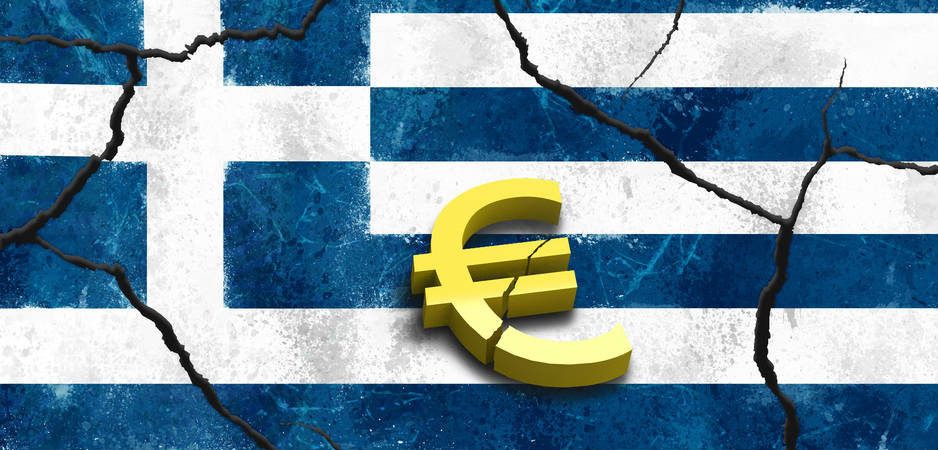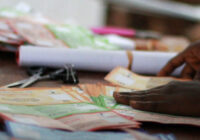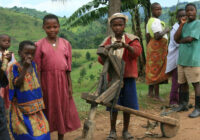Founder & Editor-in-Chief Atul Singh provides a roundup of the week’s events.
This is a week of two tragedies. In Paris, 12 people were killed and many more wounded when Islamist terrorists attacked Charlie Hebdo, a satirical newspaper renowned for its biting wit and scathing cartoons. In Nigeria, Boko Haram, an Islamist group, razed 16 towns and villages in Borno state. Earlier, it had captured the town of Baga and the headquarters of the Multinational Joint Task Force (MNJTF), which is made of troops from Nigeria, Niger and Chad. Hundreds have died as Boko Haram continues its war to impose Islamic law in the northeast of Nigeria.
France has a long history of radical philosophy, anti-clericalism and biting satire. Charlie Hebdo represented the best of the French tradition and took pot shots at everyone. In 2012, it published a cartoon of Prophet Muhammad naked and crouching. It was firebombed the next day. Undaunted, the celebrated cartoonists of Charlie Hebdo continued to mock the prophet. In an interview to Le Monde, Managing Editor Stéphane Charbonnier, or “Charb,” declared: “What I’m about to say is maybe a little pompous, but I’d rather die standing up than live on my knees.” This week Charb got his wish and it is terrific that Charlie Hebdo will go to print next week. Murderous fanatics have to be defied.
In Germany, Patriotic Europeans Against the Islamization of the West (PEGIDA) marched against the Islamization of Europe. With the exception of Dresden, where 18,000 turned up, not too many people seemed to support PEGIDA. The German press ridiculed demonstrators as washed up, elderly and xenophobic. Counter demonstrations attracted large numbers. Given Germany’s tortured history with minorities, it is unsurprising that Germans resist anything that smacks of xenophobia and are keen to show solidarity with minorities.
In Sri Lanka, President Mahinda Rajapaksa has admitted defeat in the national elections. Maithripala Sirisena won and will be the new president. Rajapaksa has been the strongman of Sri Lanka for the last decade. His brothers were part of his cabinet and other family members held powerful positions. Rajapaksa had crushed Tamil separatists with an iron hand and been tough with other minorities. Sirisena served in the Rajapaksa cabinet and announced his candidacy only in November. He claimed that Sri Lanka was heading toward a dictatorship. More importantly, Sirisena promised that he would end corruption and nepotism. He benefited from getting the entire minority vote. Even though Sirisena is a staunch Sinhalese nationalist, he will have to placate his support base. Some rollback of Rajapaksa’s hard-line policies is inevitable and minorities will breathe easier now that he is gone.
This week, grim news emerged about Syria and Central African Republic (CAR). A report by the Organization for the Prohibition of Chemical Weapons (OPCW) found evidence that the Assad regime had used chemical weapons against its people. The 117-page OPCW details the use of chlorine gas, but the complicated conflict makes this report an academic exercise. With the rise of the Islamic State, the Assad regime is no longer public enemy number one. In CAR, the United Nations has found that Christian militias have carried out ethnic cleansing of Muslims during the country’s ongoing civil war. It has also found that human rights were violated by all parties. The situation continues to remain grim.
After a frothy 2013, share prices have tumbled this year with the S&P 500 down by almost 5%, the Nikkei by 14% and the MSCI emerging-market index by almost 9%. The fall in global share prices has led to a loss of more than $3 trillion of wealth. Worries about the Greek elections have not helped. Oil prices have decreased because supply increased and demand fell. For the first time since the financial crisis, the price of Brent Crude has dipped below $50 a barrel. This creates winners and losers. Energy importers are in good shape, but energy exporters are seeing falling revenues.
Finally, Thomas Piketty, the celebrated economist and author of Capital in the 21st Century, has turned down the Legion D’Honneur, France’s top award. He believes it is not the government’s role to decide who is honorable. Last year, Jacques Tardi turned down the award too. Gallic indifference is a wonderful thing. As people gather with placards and pencils saying “Je Suis Charlie,” we salute the spirit of Charb and la grande nation. Vive la France!
You can receive “The World This Week” directly to your inbox. Please click here to subscribe. You can also sign up to our Daily Brief on the same form. Meanwhile, please find below five of our finest articles for the week. From all of us at Fair Observer, we wish you a marvelous 2015.
[seperator style=”style1″]There is No Place for God in Religious Indoctrination[/seperator]
Amid the Charlie Hebdo attacks, Sara El-Yafi argues that there is no place for God in a religion.
There is an essential thing to be said about the relationship of man to God today in light of the horrifying events happening in our world. The defeat of development in the face of religious doctrines is fascinating to chart out. Read More
[seperator style=”style1″]Charlie Hebdo Attack: Refining the 9/11 Model[/seperator]
Underlying the attack on the Charlie Hebdo magazine is a far greater threat than the brutalizing of freedom of expression.
Just like al-Qaeda’s audacious attacks on the World Trade Center in New York and the Pentagon in Washington on September 11, 2001, the raid by suspected jihadist militants in Paris on the French satirical magazine Charlie Hebdo will have far-reaching repercussions on… Read More
[seperator style=”style1″]Excuse Me, Why is Jesus White?[/seperator]
Jesus should look more Palestinian and less European to stop symbolizing the supremacy of the white man.
As a child, I attended Christian schools. These institutions taught students well. Teachers were tough but cared. I remember one Mrs. Lobo constantly trying to get me to study. Both she and my mother were frequently upset because I would bunk class… Read More
[seperator style=”style1″]This is How Greece Might Leave the Euro[/seperator]
Germany and the European Central Bank may not come to the rescue this time.
An interesting month lies ahead for the euro area. On January 22, the European Central Bank (ECB) will meet and they will either announce a QE-style monetary policy action, as most expect by now, or they will disappoint markets with yet another statement suggesting… Read More
[seperator style=”style1″]Still No Way Out in Ukraine[/seperator]
Fear and miscalculation are stalling the peace process in Ukraine.
Betrayal is poison for any relationship, especially when it is used by those in the relationship to win over a third party. Thus, the crisis between Russia and the West was sparked by both sides’ willingness to violate international law, treaties, and agreements in pursuit of a geopolitical… Read More
Fair Observer is a nonprofit organization dedicated to informing and educating global citizens about the critical issues of our time. Please donate to keep us going.
The views expressed in this article are the author’s own and do not necessarily reflect Fair Observer’s editorial policy.
Photo Credit: NeydtStock / Hadrian / Shutterstock.com
Support Fair Observer
We rely on your support for our independence, diversity and quality.
For more than 10 years, Fair Observer has been free, fair and independent. No billionaire owns us, no advertisers control us. We are a reader-supported nonprofit. Unlike many other publications, we keep our content free for readers regardless of where they live or whether they can afford to pay. We have no paywalls and no ads.
In the post-truth era of fake news, echo chambers and filter bubbles, we publish a plurality of perspectives from around the world. Anyone can publish with us, but everyone goes through a rigorous editorial process. So, you get fact-checked, well-reasoned content instead of noise.
We publish 2,500+ voices from 90+ countries. We also conduct education and training programs
on subjects ranging from digital media and journalism to writing and critical thinking. This
doesn’t come cheap. Servers, editors, trainers and web developers cost
money.
Please consider supporting us on a regular basis as a recurring donor or a
sustaining member.
Will you support FO’s journalism?
We rely on your support for our independence, diversity and quality.













Comment